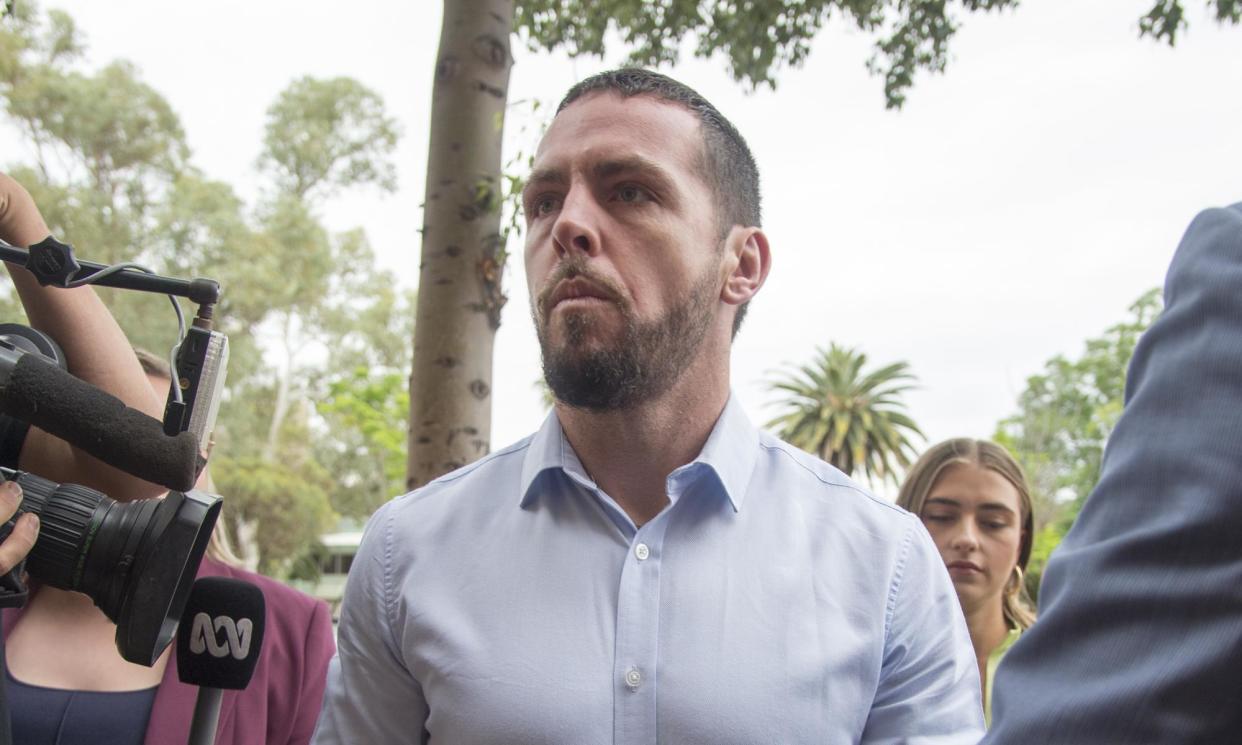Kumanjayi Walker inquest: former NT police officer Zachary Rolfe will refuse to answer some questions

Former Northern Territory police officer Zachary Rolfe has said he will refuse to answer questions about his alleged drug use and use of force in other incidents during the inquest into the fatal shooting of an Indigenous teenager on the basis he could incriminate himself.
The ex-constable shot Kumanjayi Walker, 19, three times during a bungled outback arrest in Yuendumu, north-west of Alice Springs, on 9 November 2019.
An inquest into the Warlpiri man’s death continues on Thursday, with Rolfe expected to give evidence from Monday after attempts to avoid giving evidence last year failed.
In a submission to the inquest earlier this month that was released on Wednesday, Rolfe’s legal representative, Luke Officer, said Rolfe intends to make a claim of privilege against self-incrimination on a variety of topics. They include eight other alleged use of force incidents; his NT police force employment application; text messages related to alleged recreational drug use – illicit or prescription; and text messages related to alleged dissemination of body-worn video.
Officer said once a claim is made, Rolfe will object to the coroner, Elisabeth Armitage, compelling him to answer questions. Officer said for Rolfe to be compelled it would need to appear to the coroner that it is expedient for the purposes of justice, and that an immunity certificate be offered for him to answer the question.
“In Mr Rolfe’s submission, it would not be expedient for the purposes of justice for him to be compelled to answer questions in relation to the above topics.”
Officer said the alleged use of force incidents have no bearing on the issues to be determined.
“It has been said numerous times in this inquest that it is not a royal commission, and that is plainly so,” Officer said.
Compelling Rolfe to answer questions on these issues that “are so devoid of connection” with Walker’s death would be “akin to the approach of a roving royal commission”, he said.
“It would be a genuine distraction from the true functions that this court has been entrusted to perform. The Coroner should not entertain such an approach; it would be legally wrong.”
In response, the Walker family said in a submission that these concerns could be dealt with as questions arise, noting Rolfe had already been acquitted of criminal charges arising from the shooting, and was no longer a police officer and “thus no longer susceptible to criminal charges for that conduct or any disciplinary action for any of his conduct as a police officer”.
NT police said in its submission that, depending on the nature of the question asked, it would be “well open to the coroner” to find the topics that are the subject of objection by Rolfe, to fall within the scope of the inquest, given the extensive powers of the coroner.
Counsel assisting the inquiry also argued the objections could be dealt with by the coroner as they arise.
The inquest so far has sat for 57 days since September 2022, with over 70 witnesses. Rolfe, and his former colleague, Sgt Lee Bauwens – who was in charge of NT’s immediate response team that Rolfe was part of – are the last witnesses of the inquest.
Bauwens is expected to start his evidence later on Thursday.

 Yahoo News
Yahoo News 
